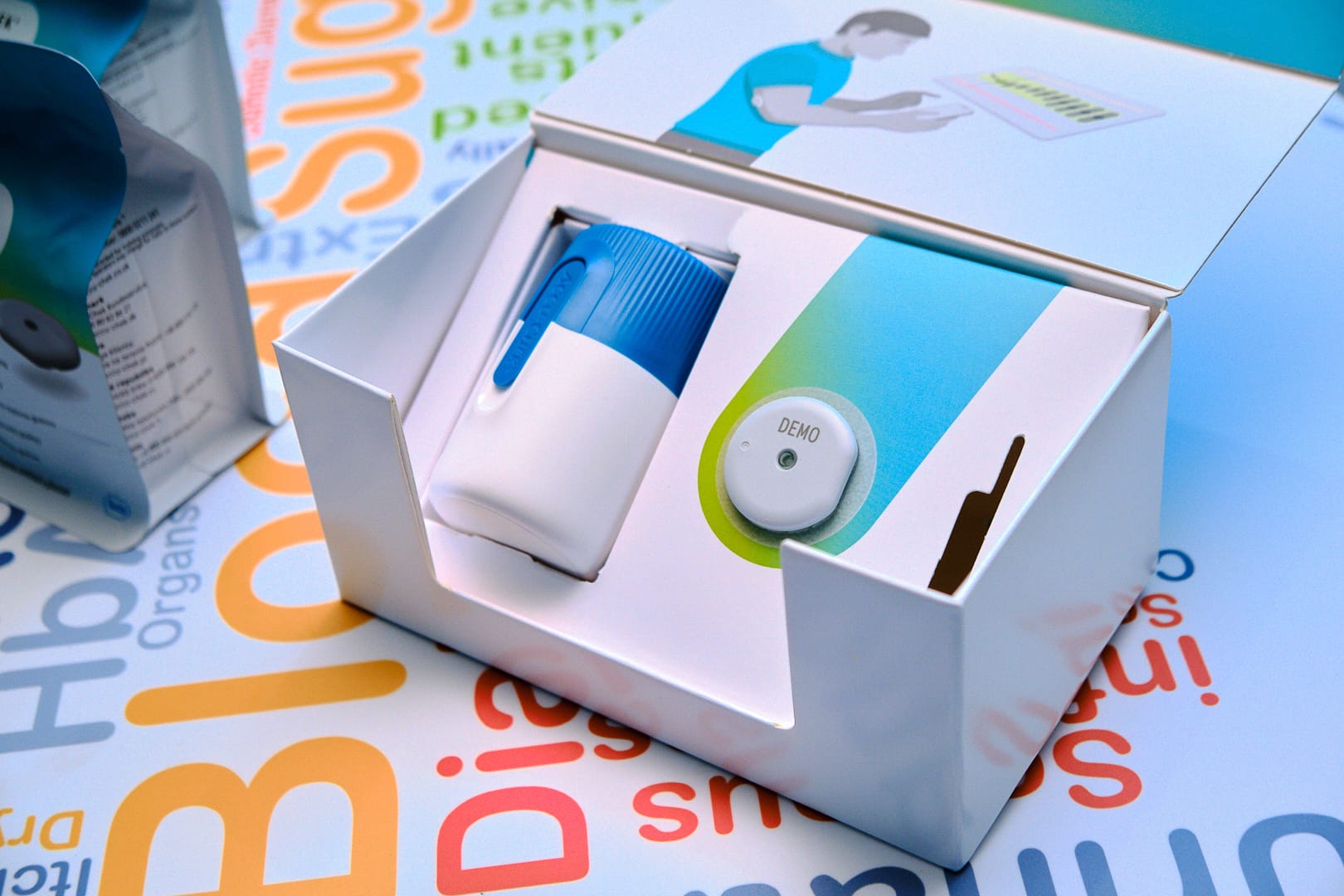AI-powered glucose monitoring technology debuts in South Africa to transform diabetes management
Postado por Editorial em 05/11/2025 em TECH NEWSRoche's predictive analytics platform uses artificial intelligence to forecast glucose fluctuations up to two hours in advance, shifting diabetes care from reactive to proactive approach

Roche has introduced its Accu-Chek SmartGuide continuous glucose monitoring system in South Africa, marking the first deployment of AI-enabled predictive glucose analytics in the market. The technology provides adults living with diabetes access to artificial intelligence-driven insights that forecast glucose levels and predict hypoglycemic events before they occur.
Diabetes represents a critical healthcare challenge in South Africa, affecting 4.2 million people as of 2024. Unmanaged diabetes can result in severe complications including cardiovascular disease, kidney failure, nerve damage, vision loss, limb amputation, and mental health disorders. Research conducted by GWI in partnership with Roche found that 58% of people with diabetes report experiencing mental burden associated with managing their condition.
While continuous glucose monitoring technology has substantially improved diabetes care since its introduction, many individuals still struggle to maintain glucose levels within optimal ranges using existing systems. Hypoglycemia remains prevalent among type 1 diabetes patients, with severe episodes occurring in 3.3% to 13.5% of cases annually. Nocturnal hypoglycemia presents particular risks, accounting for approximately 2-5% of deaths in type 1 diabetes patients under age 40.
"The Accu-Chek SmartGuide CGM solution is a significant step towards providing greater peace of mind for people living with diabetes, due to the AI-enabled predictive capabilities it offers. This empowers patients to take action before undesired events occur," said Merilynn Steenkamp, General Manager for Southern Africa at Roche Diagnostics. "Our new Accu-Chek SmartGuide CGM solution puts the power of prediction into the hands of people living with diabetes with its integrated AI-enabled algorithms that predict glucose levels for the next 2 hours as well as imminent and nocturnal hypoglycaemia. People with diabetes should have the freedom to plan the day ahead and get a good night's sleep at the end of it all."
The artificial intelligence capabilities embedded in Accu-Chek SmartGuide represent a fundamental shift in diabetes management philosophy moving from reactive response to proactive intervention. AI-trained algorithms analyze real-time glucose data to predict trajectory over multiple time horizons: 30 minutes for imminent hypoglycemia warnings, 2 hours for general glucose trend forecasting, and overnight periods spanning 7 hours for nocturnal event prediction.
The system architecture combines hardware and software components. A wireless, water-resistant sensor attached to the upper arm transmits glucose measurements to the Accu-Chek SmartGuide mobile application every five minutes. The companion predict application processes these continuous readings alongside optional user-entered information including food consumption and insulin administration. Machine learning algorithms trained on extensive datasets identify patterns in this combined data to generate predictive insights.
Fear of hypoglycemia itself can significantly impact diabetes management, metabolic control, and long-term health outcomes. The unpleasant symptoms and potentially dangerous consequences of low glucose events create anxiety that influences treatment decisions and quality of life. By providing advance warning of impending episodes, AI-enabled prediction addresses both the physical and psychological dimensions of diabetes management.
Clinical validation studies demonstrated the system's measurement accuracy, achieving an overall mean absolute relative difference of 9.2% with 99.8% of glucose readings falling within acceptable accuracy zones on the Parkes Error Grid. Evaluation of the predictive algorithms confirmed that all advanced forecasting features exceeded performance requirements for accuracy, sensitivity, and specificity metrics.
The technology exemplifies how artificial intelligence applications in healthcare extend beyond diagnostic support to continuous monitoring and predictive intervention. By processing real-time physiological data through trained algorithms, AI systems can identify patterns and trajectories that enable proactive management of chronic conditions. This approach transforms patient experience from constant vigilance and reactive correction to informed anticipation and planned intervention.
For healthcare systems managing large diabetic populations, predictive monitoring technology offers potential to reduce emergency interventions, prevent complications, and improve long-term outcomes. South Africa's substantial diabetic population—coupled with healthcare infrastructure challenges—creates particular need for technologies that enable effective self-management and reduce acute care requirements.
Roche's deployment of AI-powered glucose monitoring in South Africa positions predictive analytics as standard capability in diabetes care technology, establishing benchmark for how artificial intelligence can augment clinical management of chronic conditions through continuous data analysis and actionable forecasting.




